In just a few months we will mark the third anniversary of Russia’s invasion of Ukraine. The war has resulted in hundreds of thousands of casualties, and has left millions displaced. Ukraine’s infrastructure — in particular the energy infrastructure — is in shambles. The costs of recovery will likely be in the trillions of dollars. And still, there is no end in sight.
As the war drags on, calls for negotiations are becoming louder. President Volodymyr Zelensky has been trumping up support for his Victory Plan. The details are unclear — presumably the “plan” is to negotiate new military aid and viable security guarantees for Ukraine in return for the promise of a ceasefire and a probable forfeit of the occupied territories. But for any ceasefire to take effect, the other side has to want it.
Putin did not build his massive war machine to score tiny gains in Donbas
To understand what Putin may want, we have to put ourselves in his shoes. If I were Putin (a weird thought) I would draw up a list of factors in favor and against peace talks.
On the pro side: this war has been expensive. Russia’s military and security expenditures for 2025 are estimated to comprise 40 percent of the entire budget, which is more than what Russia will spend on the social services, education, and health combined. This represents some 8 percent of Russia’s GDP, a figure comparable to Soviet military spending at the height of the Cold War. Over time, such spending priorities will have serious negative consequences for the regime, even if in the short term, the Kremlin has managed to drum up support for the war effort, selling the invasion to the beguiled populace as a war for Russia’s very survival.
Another reason for giving peace talks a try is the extent of Russia’s military losses — at least 70,000 killed. Although unlike Ukraine, Russia does not generally conscript soldiers to fight on the frontlines (instead, it hires contract soldiers), it may well have to resort to mobilization to make up for the shortfall of manpower, feeding discontent (much as was the case with Putin’s partial mobilization measures in September 2022).
The third reason to talk is the possibility of escalation and, in particular, the extension of the war to Russia’s own territory. True, Ukraine has long carried out drone strikes against targets in Russia, including ammunition dumps, airfields and oil refineries. The ongoing Kursk incursion may have aimed, at least in part, at reminding the Russians that this war may yet take unexpected turns.
But Putin’s real fear is the prospect of Ukraine finally securing Washington’s agreement to missile strikes against targets deep inside Russia. Putin has threatened retaliation against NATO if such a permission were given, yet he can ill afford to bring the Western alliance into this war: he would certainly lose.
Even while considering these and other challenges, Putin would also have to weigh the benefits of war.
First, the Kursk sideshow notwithstanding, the war is still being fought on the Ukrainian territory. In a war of attrition, Russia has distinct advantages over Ukraine, including an incomparably larger population and an indigenous and sophisticated military industry that has moreover been vastly expanded since 2022.
Russia has been making slow but steady gains in Donbas, as exemplified by the recent capture of Vuhledar. While the frontlines have barely moved in two years, Russia could yet break through, inflicting an outright defeat on Ukraine.
There are very few reasons to think that, if given an opportunity to annex Ukraine, Putin would not gobble it up. It is true that there are costs inherent in occupying such a vast territory, including a hostile population, and the enormous costs of reconstruction. But the fanciful notion that he would sue for peace after capturing Donbas understates the degree of his commitment to the war effort.
Europeans are asleep at the wheel, Americans too distracted to pay attention
After spending so much blood and treasure on Ukraine, he could hardly be expected to back off before the Russians troops goose-stepped up and down the Khreshchatyk street in Kyiv. He did not build his massive war machine to score tiny gains in Donbas. In this case, the means point to the ambition. The ambition is not to divide Ukraine, but to conquer it.
Moreover, there are serious downsides to a negotiated peace that would keep Ukraine divided. A truncated, resentful Ukraine could one day claw its way to NATO, and would surely create trouble for Putin down the road, including in the newly annexed territories.
The second reason for continuing the war is Putin’s reasonable expectation that western support for Ukraine will decline even further. If the protracted struggle over the last supplemental is anything to go by, there is little prospect of further military aid from the United States.
Whether the EU will be capable of, or willing to, fill the gap, remains to be seen. Defense spending across the EU (where several countries still fail to meet NATO’s bottom-line threshold of 2 percent) suggests that, for all the alarmist rhetoric, few in Europe see the war in Ukraine as truly existential.
In short, the Europeans are asleep at the wheel, and the Americans are too distracted to pay much attention. Washington has different priorities: there’s China; there’s the Middle East; there’s, above all, the drama of the presidential election. Putin knows about these problems — and is ready to press his advantage. If not now, then when?
He may yet score big if Trump wins the election, but even if Trump loses, America is virtually guaranteed to be preoccupied with its own predicament, leaving Zelensky in the lurch.
The final reason to keep going is that the war has helped consolidate the Russian society for the benefit of the ruling regime. A major victory in Ukraine will feed Putin hysteria and radically improve his standing in Russia’s troubled neighborhood, particularly in Central Asia and the Caucasus. Putin probably hopes that he can then rebuild relations with Europe based on a new status quo, one that recognizes Russia as a major geopolitical actor.
So far, few Europeans are willing to play along (Viktor Orbán being the major exception). But what Putin really hopes for is a breakthrough with Germany, and a replay in some form of Willy Brandt’s Ostpolitik based on Berlin’s acceptance of Russia’s return. Any such rapprochement would deal a near-fatal blow to NATO’s credibility and further undermine European unity – all the greater reason for Putin to press on.
A practitioner of realpolitik, Putin sees this war as an important investment that is just beginning to pay dividends. The chips are down. He does not need half-way solutions. He has spent money and lives. He is hoping to reap power and glory, and to secure his historical legacy as the czar who brought Ukraine back home.
This article was originally published on The Spectator’s UK website.



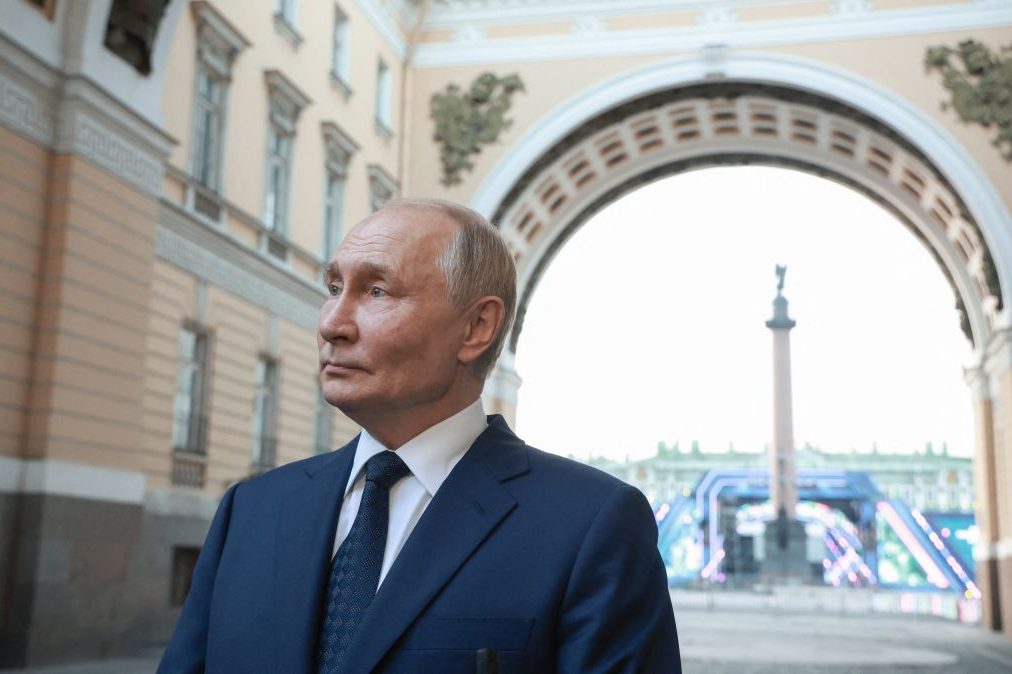






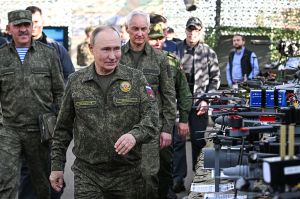
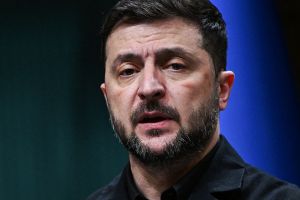
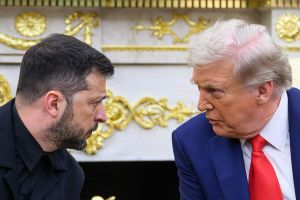



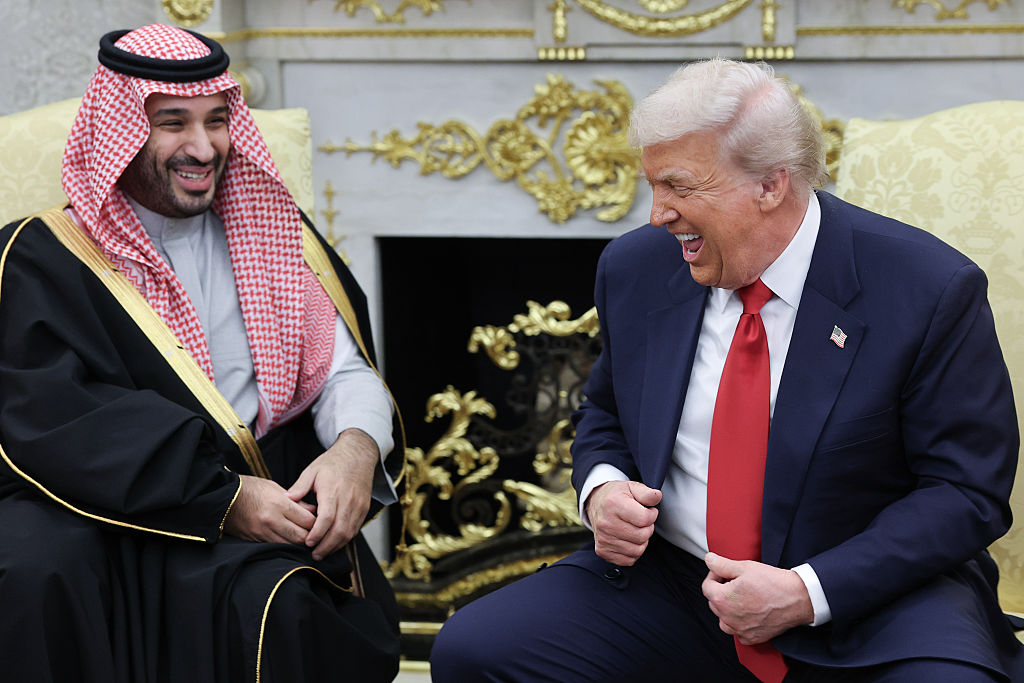









Leave a Reply